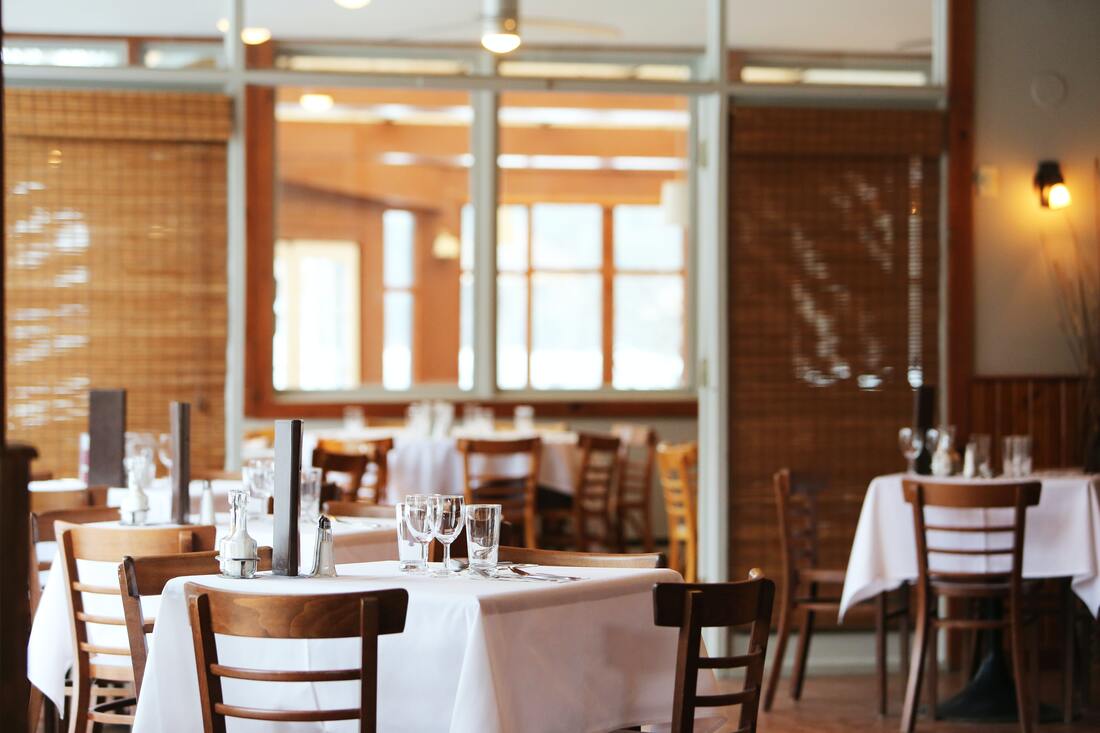|
Are you considering opening a restaurant? For many people, being able to create meals for a living can often be a dream, and shaking up the food industry with mouthwatering culinary delights is something many budding and experienced chefs work towards each year. Currently, in 2023, there are over 156,000 full-service single-location restaurants in the US, and studies show that 60% of new eateries will sadly fail within the first 12 months, and that figure rises to 80% in five years. But that doesn't mean you shouldn't follow your dream, far from it; you need to be a bit more creative and resourceful when it comes to getting up and running. You need to learn from the mistakes of restaurateurs before you and get it right from the beginning, be it your service, your dishes, or your financial decisions, as all of these are mighty hard to come back from should you experience major faux pas in the early days. Without further ado, this post delves into how you can make a splash for all the right reasons in the food industry and be a kitchen hero, not a kitchen nightmare. Hire A Great ChefThe heart and soul of any successful restaurant lies within the kitchen, and at the helm of that kitchen is your chef. A phenomenal chef creates delicious dishes and sets the tone for the culinary experience. Hiring a great chef is the first and most critical step toward ensuring your restaurant's success. When searching for the perfect chef, look beyond their culinary skills and consider their ability to manage a team, maintain high food safety standards, and work within a budget. Additionally, the chef must have a deep understanding of your restaurant's concept and be able to create dishes that align with your vision. The right chef will be a partner in your venture, possessing the passion and dedication to help bring your dream to life. Don't be afraid to take your time during the hiring process, as finding a chef that shares your vision and possesses the skills to execute it is critical to your restaurant's long-term success. Define Your ConceptThe concept of your restaurant is the foundation upon which everything else is built. The unique selling proposition sets you apart from the competition and draws customers to your establishment. Defining your concept involves determining the type of cuisine, service style, ambiance, and target market for your restaurant. This process requires extensive research, including analyzing local competition, identifying market gaps, finding unique restaurant ideas, and understanding your customer base. Once you have a solid concept in mind, create a mission statement that clearly articulates your restaurant's purpose, values, and goals. This statement will serve as a guiding force for all decision-making, from menu creation to marketing strategies. The more clearly you define your concept, the more cohesive and distinctive your restaurant will be, and the more likely it will resonate with your target audience. Always Have Reserve Funds AvailableRunning a restaurant comes with many unforeseen expenses, and a lack of funds is one of the main reasons new restaurants fail quickly. You need to have reserve funds to keep your business afloat in the absence of takings to cover unexpected costs, staff wages, vendor bills, and more. Fluctuating prices, damage to equipment, dinnerware, loss of food due to freezer or refrigerator malfunctions, and lulls in custom are all issues that can befall a restaurant at any time, and you need to ensure you have distributed funds to accommodate each of these instances should you need to. You need to develop a financial plan that sets out how to maintain cash flow, manage your debt and keep running in the face of adversity. It can be highly beneficial for new restaurateurs to seek financial advice or even talk to peers or mentors to evaluate the market, your position, and what you can expect in the first 6 to 12 months at least. Before you open your doors, you must create a projected income and expenditures budget and a contingencies reserve. Utilize The Best Restaurant TechnologyNew restaurant businesses must embrace modern technology to improve efficiency and meet customer expectations. While the old-fashioned mom-and-pop diner with all orders being taken on a notepad is still a viable way to take orders, you need to combine this approach if you choose this with modern aspects of running a restaurant. For example, a solid front-of-house booking system can help greeters find reservations, identify spaces for walk-ins and help you to organize dining options and meet demands where needed. Point-of-sale technology can handle everything from order taking to payment processing and inventory management, allowing you to streamline operations and give your staff and customers an altogether better experience. Other technologies you can utilize in your new restaurant include digital menus and ordering screens, online reservations, mobile apps for ordering, or even robotic servers that can take dishes out the table to support your wait staff during busier periods. Keep The Menu FlexibleYour menu is your most powerful tool, and it will directly impact your profitability and customer satisfaction. So you must utilize it in the right way. This means being as flexible as possible. Being flexible with your menu allows you to adapt to changes in customer preferences and seasonal ingredients and to allow you to refine what you serve. To keep a flexible menu, you must look at what is and isn't selling continually, any adaptations people make to dishes, and any custom requests or suggestions. You can then use this information to help you modify or remove dishes to maximize profitability and pique customer interest. You can highlight popular dishes as the special of the day or push slower-selling meals with updated recipes on offers. Neglecting to do this can result in customers leaving you for other eateries that offer what it is they want. Run A Tight KitchenWhat it means to run a tight kitchen is to ensure you are running an efficient operation that has the correct rules and procedures in place to allow you to put the right processes in place to ensure you meet only the highest standards and maintain optimal cleanliness and hygiene at all times while meeting the demands of the customer. A well-run kitchen is the backbone of any good restaurant, and as such, you need to ensure your kitchen is running as it needs to be, and no one is dropping the ball of neglecting to do their part be in in the kitchen, front-of-house staff, cleaners, wait staff or management. Failure to do so can result in a loss of profits, a drop in standards, food prep and quality of the meals you are sending out, and the speed you are able to process orders. Work with your chef and kitchen staff to find out what works and doesn't work for them and help them to put procedures in place that allow them to work more efficiently and get the job done without cutting corners. From here, you need to ensure they are supported at all times. Continual auditing, kitchen checks, and an environment of collaboration and teamwork will help you to ensure you have a well-run kitchen at all times. Appreciate Your StaffYour staff is crucial in ensuring your guests have the best possible experience. You want your employees to be as interested in doing an excellent job as you are. This means you must look at your management style and ensure you are creating a healthy working environment to allow employees to offer the best service possible. The reality is if your employees are unhappy, this will translate into the service they offer diners, the food they prepare, and the ultimate vibe and feel of your restaurant. Celebrate your staff, encourage them to go above and beyond, recognize a job well done, and share this privately and publicly and acknowledge their contributions to helping you run your restaurant. Demonstrate your appreciation by offering bonuses, staff perks, discounts, promotions, and so on so they know they are valued team members. Don't forget to ensure they have adequate training in their job roles at all times and you are providing them with the right tools for the job to reduce any inefficiencies. Invest In Your GuestsYour guests are the lifeblood of your restaurant, and their satisfaction should be your top priority. Providing exceptional service and creating memorable experiences will encourage repeat business and generate positive word-of-mouth, which is essential for attracting new customers. To invest in your guests:
By creating a welcoming and personalized environment, you can foster a sense of loyalty and connection with your customers. Additionally, invest in the little details that can elevate the guest experience. Consider offering complimentary items like bread or amuse-bouche to welcome guests and set the tone for their meals. Personalize the dining experience by providing customizations, such as substitutions or special requests. By going above and beyond to cater to your guests' needs, you can create a sense of exclusivity and luxury that will keep them coming back. ConclusionIn conclusion, opening a successful restaurant requires passion, dedication, and a willingness to evolve and adapt continuously. Remember these strategies as you embark on your culinary journey, and remember that with the right approach, your new restaurant venture can become the talk of the town!
1 Comment
Diana Carbajal
5/2/2023 09:57:05 am
If the restaurant doesn't offer delivery, we are not ordering from them, it is a must right now
Reply
Leave a Reply. |
Categories
All
Archives
May 2023
|





 RSS Feed
RSS Feed

